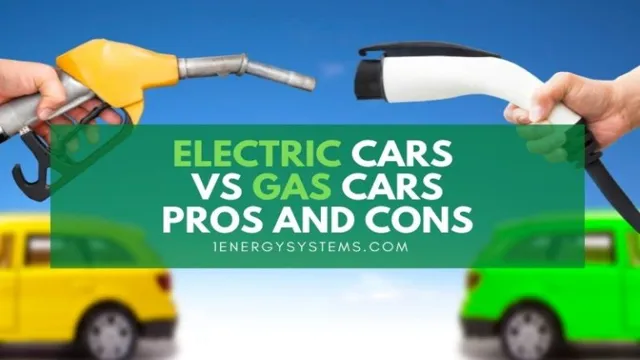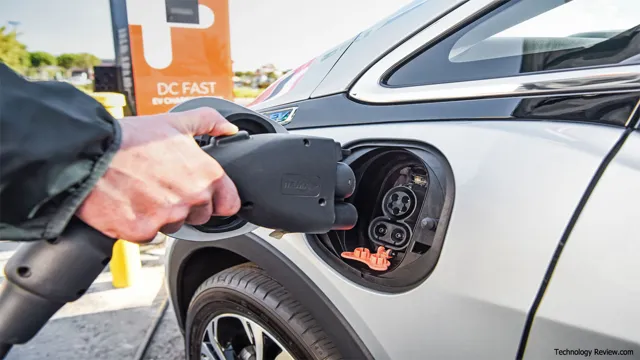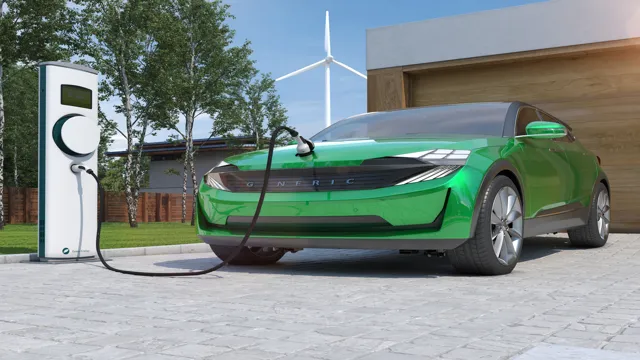Fuel Up Your Knowledge: Discovering the Advantages of Propane vs Electric Cars
Electric cars have been steadily gaining traction as the future of the automobile industry. However, propane-powered vehicles have been around for quite some time and are often overlooked in discussions about environmentally-friendly transportation. While both propane and electric cars are touted for their eco-friendliness, the benefits of propane vs electric cars go beyond just being clean energy sources.
In this blog post, we’ll take a closer look at why propane-powered cars stand out from their electric counterparts and why they deserve consideration when making the switch to a more sustainable mode of transportation. So, let’s hit the road and explore the many advantages that propane vehicles can offer.
Propane Cars Are Cleaner
When it comes to choosing between propane and electric cars, there are many benefits to consider. One of the most significant advantages of propane cars is that they are cleaner than their electric counterparts. Propane is a low-emission fuel that produces fewer greenhouse gases and harmful pollutants than gasoline and diesel.
Additionally, propane is domestically produced, which reduces our reliance on foreign sources of oil. Propane vehicles also emit less carbon monoxide, nitrogen oxides, and carcinogens compared to gasoline vehicles. This means that propane cars can contribute to improving air quality and reducing respiratory illnesses caused by vehicle emissions.
Furthermore, propane is readily available, making it convenient for use as a fuel for vehicles. Overall, propane cars are a greener, more efficient, and safer alternative to traditional gasoline vehicles, making them an excellent choice for anyone who is concerned about environmental sustainability and reducing their carbon footprint.
Propane produces 20% less greenhouse gas emissions than gasoline
Propane cars are cleaner than their gasoline counterparts because propane produces 20% less greenhouse gas emissions. This means that driving a propane car contributes less to air pollution and climate change. Not only that, but propane is also a domestically produced fuel, which reduces dependence on foreign oil imports.
Plus, propane is cheaper per gallon than gasoline, so it can save you money in the long run. It’s a win-win situation for both the environment and your wallet. So next time you’re in the market for a new car, consider a propane-powered vehicle and make a small impact towards a cleaner planet.

Propane produces 60-70% fewer smog-producing hydrocarbons than gasoline
Propane cars are cleaner than their gasoline counterparts, emitting 60-70% fewer smog-producing hydrocarbons. This is because propane is a cleaner-burning fuel that produces less particulate matter, volatile organic compounds, and nitrogen oxides that contribute to air pollution and poor air quality. Plus, propane is a locally sourced fuel, which means it cuts down on transportation emissions, unlike gasoline, which can be sourced from all over the world and transported to gas stations near you.
What’s more, propane is also a more efficient fuel than gasoline, which means engines running on propane can achieve higher miles per gallon, resulting in lower emissions and lower costs for drivers. And because propane does not contain ethanol, which can harm engines and fuel systems, propane-fueled cars require less maintenance, which means less pollution from oil changes and repairs. Overall, propane is a cleaner, more efficient, and locally sourced fuel that can help reduce air pollution and improve air quality for everyone.
So, why not consider switching to a propane-powered car today?
Propane Cars Cost Less Long Term
When it comes to choosing between propane and electric cars, propane cars have a cost advantage over a longer period of time. While electric cars may seem like they have lower operating costs, when you look at the lifetime cost of ownership, propane cars come out on top. Propane fuel is typically cheaper than gasoline or diesel, and it also burns more efficiently.
This means that propane cars can achieve similar fuel efficiency to gasoline cars, while using a fuel that is cheaper and cleaner. Not only that, but propane vehicles require less maintenance than gasoline or diesel cars. They don’t require oil changes as frequently, they have fewer moving parts, and they tend to have a longer lifespan.
So if you are looking for a vehicle that has a lower cost of ownership over time, propane cars are a great option.
Propane is around $1.00 less per gallon than gasoline
Propane cars offer a cost-effective solution for drivers looking to save on fuel expenses in the long run. With propane costing roughly $00 less per gallon than gasoline, the savings add up quickly.
Although propane cars may seem like a new concept, they have been around for decades and have proven to be reliable and efficient. Additionally, propane is a cleaner burning fuel, leading to lower maintenance costs and less wear and tear on the engine. Over time, these savings can make a significant impact on a driver’s wallet.
Perhaps the best part is that propane conversion kits are readily available for purchase, making it easy to convert almost any gasoline-powered vehicle to propane. So why not make the switch today and see how propane cars can save you money in the long term?
Propane engines have lower maintenance costs than gasoline engines
Propane cars are becoming increasingly popular due to their lower long-term costs. When compared to gasoline engines, propane engines have lower maintenance costs, making them more cost-effective over time. Propane engines require fewer oil changes and have fewer emissions, meaning less wear and tear on engine parts.
Additionally, propane is less expensive than gasoline, so refueling costs are significantly lower for propane engines. Furthermore, propane engines have a longer lifespan than gasoline engines, which means less money spent on replacing engines or major components over time. All of these cost-saving benefits make propane cars a practical and affordable choice for those looking to save money on their vehicle’s maintenance.
So, why not consider a propane-powered car for your next purchase and enjoy the many benefits that come with it?
Electric Cars Are Better for the Environment
When it comes to choosing between propane and electric cars, the latter certainly holds an edge in terms of environmental benefits. Electric cars are powered by batteries that generate electricity without any emissions, while propane cars emit greenhouse gases that contribute to air pollution and climate change. In fact, electric cars produce up to 50% less carbon dioxide emissions than propane cars, thereby reducing our carbon footprint and preserving the environment.
Besides, electric cars are more energy-efficient and consume less fuel, making them cost-effective in the long run. With the growing awareness about sustainability and the need to protect our planet, electric cars are becoming a popular choice among eco-conscious motorists. So, if you’re looking to reduce your carbon footprint and make a positive impact on the environment, electric cars are definitely worth considering.
Electric cars produce no tailpipe emissions
Electric cars are a clear winner when it comes to environmental sustainability. Unlike traditional cars that rely on fossil fuels to power their engines, electric cars use rechargeable batteries and produce no tailpipe emissions. This means that they emit zero harmful pollutants into the air, making them a more eco-friendly option.
Plus, as the energy grid becomes increasingly powered by renewable energy sources, electric cars will become even cleaner to operate. It’s important to note that producing the batteries for electric cars does have an environmental impact, but the overall impact is still far less than that of traditional cars. When it comes to reducing our carbon footprint and preserving the environment, electric cars are definitely the way of the future.
Electric cars are charged with renewable energy sources
As the world shifts towards more sustainable practices, electric cars have become increasingly popular due to their minimal carbon footprint. Unlike traditional gas-powered vehicles, electric cars are charged with renewable energy sources like wind and solar power. This means that as they run, they emit no harmful pollutants, making them much better for the environment.
In addition to being environmentally friendly, electric cars can also save you money in the long run through lower fuel and maintenance costs. Although they may have a higher upfront cost than gas-powered cars, the savings over time can more than make up for it. Overall, electric cars are a great choice for anyone looking to reduce their carbon footprint and save money in the process.
Electric Cars Offer Longer-Term Cost Savings
When comparing propane vs electric cars, it’s important to consider the long-term cost savings that come with electric vehicles. While propane may be cheaper at the pump in the short term, electric cars offer significant savings over their lifetime. Electric cars require less maintenance, as they have fewer moving parts and don’t require frequent oil changes.
Additionally, they don’t produce emissions or require fuel, which can save you money on gas over time. Charging an electric car is typically cheaper than filling up a propane vehicle, and with more charging stations being built every day, the convenience factor is only improving. While initial costs can be higher for electric cars, these savings over time make them a great investment for your wallet and the environment.
So when it comes to the benefits of propane vs electric cars, electric is the clear choice for long-term cost savings.
The cost of electricity is typically less expensive than gasoline or propane
When considering the long-term cost savings of owning an electric car, one of the most significant benefits is the lower cost of electricity compared to gasoline or propane. While the upfront cost of purchasing an electric car may be higher than a gas-powered vehicle, the savings on fuel costs over time can make up for the initial investment. In fact, electric cars can save their owners thousands of dollars a year in fuel costs alone.
Plus, electricity is much more consistent in price compared to the volatility of gas prices. Choosing a more sustainable and cost-effective option for transportation not only benefits your wallet but also the environment. By making the switch to an electric car, not only can you save money in the long run, but you’re also doing your part to reduce carbon emissions and create a more sustainable future.
Gasoline and propane prices are more volatile than electricity prices
Electric cars have become more affordable, and there are several advantages to owning an electric vehicle. One key advantage is that electric cars offer longer-term cost savings, mainly due to the consistent and affordable price of electricity. Gasoline and propane prices are more volatile than electricity prices and can fluctuate based on geopolitical events, natural disasters, and other factors.
As a result, gas prices can rise drastically within just a few days. In contrast, the price of electricity is stable and predictable, providing electric car owners with peace of mind and clarity when it comes to their motoring expenses. Additionally, electric car owners don’t have to worry about oil prices, as these vehicles do not require oil changes or any type of lubrication.
Overall, electric cars offer a practical solution for those who want to save money on gas and maintenance while also contributing to a cleaner environment.
Conclusion
So there you have it folks, the battle of propane vs electric cars has been won! While both have their advantages, propane comes out on top with its cleaner emissions, cheaper fuel costs, and ability to run on a variety of fuels. It may not be as flashy or buzzworthy as its electric counterpart, but sometimes the simplest solution is the best. Plus, with propane, you won’t have to worry about getting stuck on the side of the road waiting for a charging station to become available.
So let’s raise a toast to propane – the unsung hero of the alternative fuel world!”
FAQs
What is propane and how does it differ from electricity as a fuel source for cars?
Propane is a flammable hydrocarbon gas that is produced from natural gas processing and crude oil refining. It is a clean-burning fuel that produces fewer emissions than gasoline, diesel, or electricity. Compared to electric cars, propane-powered vehicles have a longer range and can refuel faster.
What are the environmental benefits of using propane instead of electricity for cars?
Propane emits significantly fewer greenhouse gases and air pollutants than gasoline, diesel, or electricity. It produces 20-30% less carbon dioxide, 60-70% less carbon monoxide, 80-90% less nitrogen oxide, and almost no particulate matter emissions. It also reduces dependence on foreign oil and supports domestic energy production.
How does the cost of propane compare to electricity as a fuel source for cars?
The cost of propane is typically lower than gasoline or diesel, but it can vary depending on the region and market conditions. Propane-powered vehicles have a higher upfront cost than gasoline or diesel cars, but they have lower maintenance and fuel costs. The cost of electricity varies depending on the region, the type of charging station, and the time of use. In general, electricity can be cheaper than gasoline, but it also depends on the price of electricity and gasoline.
What are the safety concerns associated with using propane as a fuel for cars?
Propane is a safe fuel that has been used in vehicles for many years. It has a low flammability range and is not toxic or corrosive. Propane tanks are designed to withstand crashes and are equipped with safety devices, such as pressure relief valves and excess flow valves, to prevent overpressure and leaks. However, propane requires special handling and storage procedures, and it should only be refueled by trained professionals.



